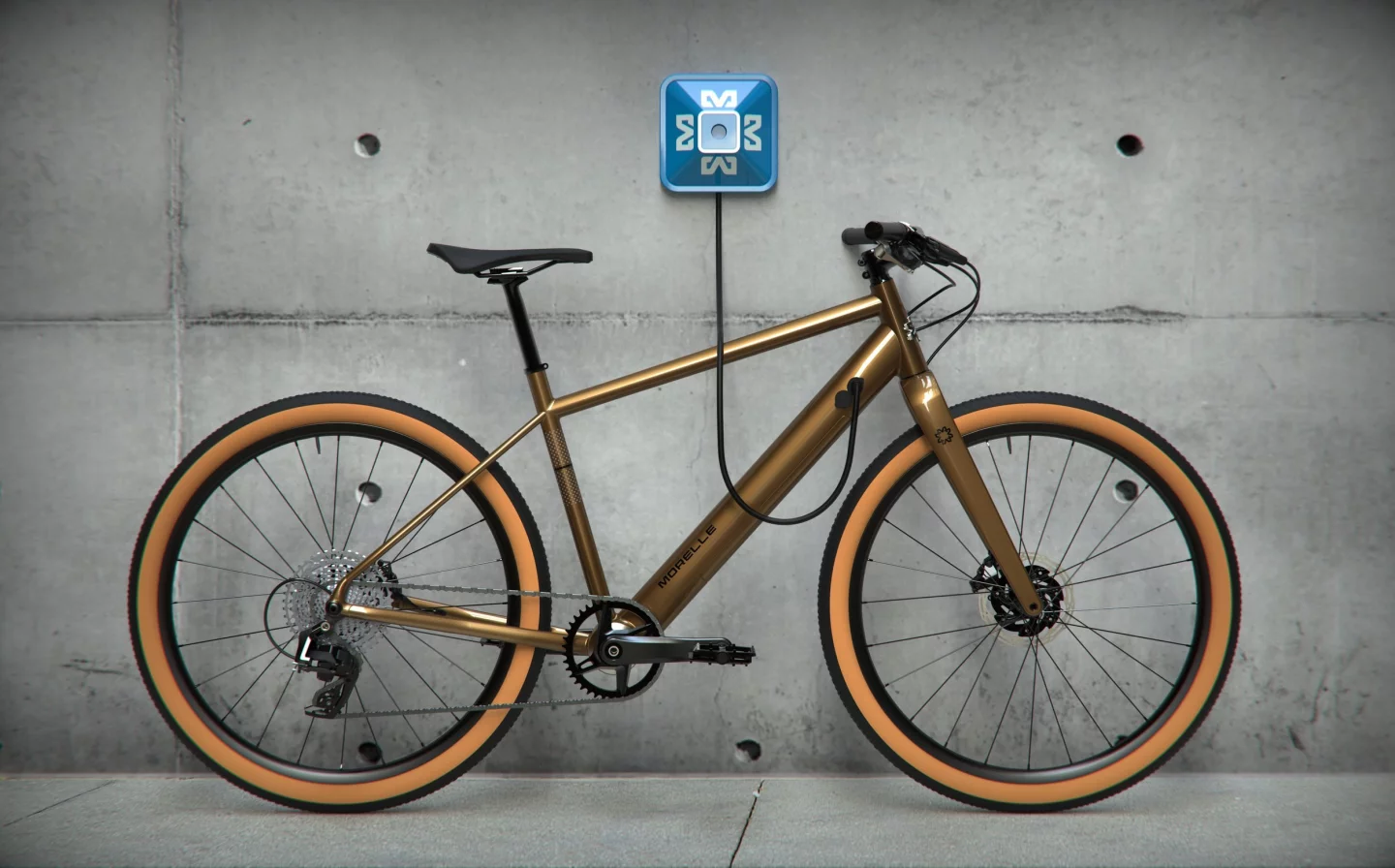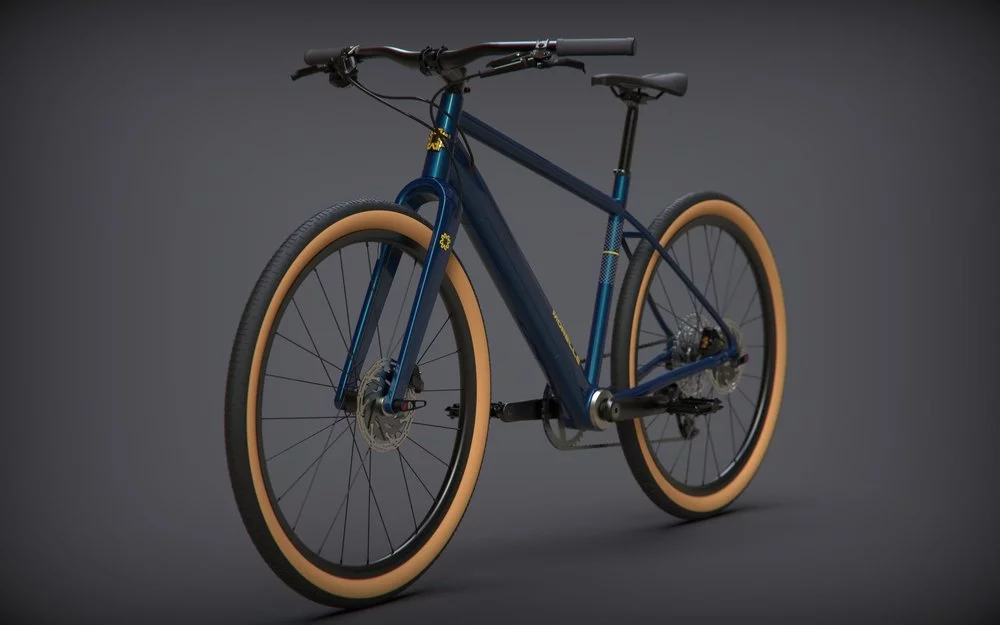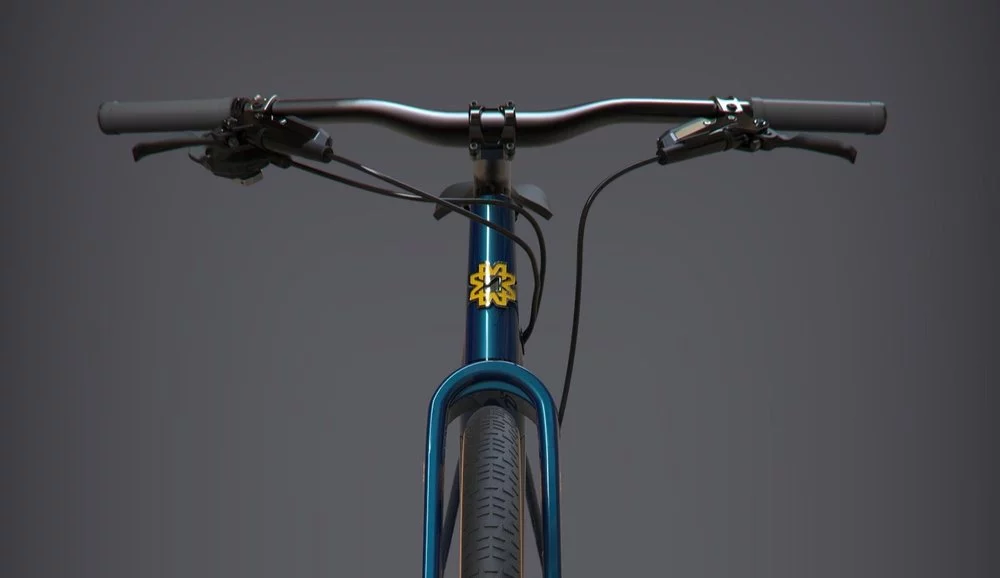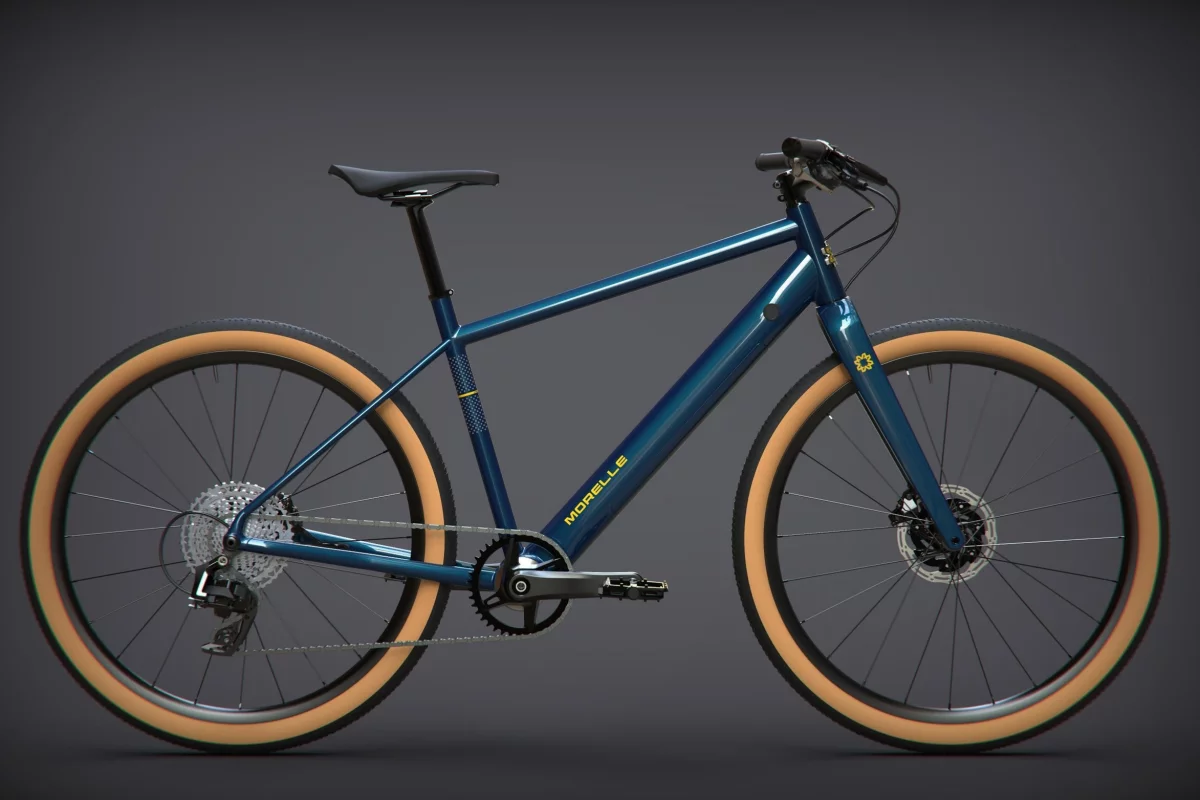The typical charging time for an ebike battery is measured in hours, but California startup Morelle looks to slash that unit to minutes. With a leadership team that includes mountain bike pioneer and hall of famer Gary Fisher, whose name once adorned its own brand of well-regarded bicycles, Morelle aims to introduce the world's fastest-charging ebike. The new bike also looks to be as sleek and lightweight as it is convenient to charge on the fly. And Morelle's battery tech has implications well beyond bikes.
A quick search through Google indicates that the average ebike charges in a timeframe between three and six hours. A comparison with some of the most recent ebikes and ebike brands we've covered suggests that's an accurate range, with the caveat that some bikes charge a little more quickly – closer to two hours.
Regardless of whether we put two or three hours at the low end, it's a very far cry from 15 minutes. Morelle is preparing a 350-Wh down-tube-integrated battery pack for its sleek urban commuter with the aim of ducking below that 15-minute mark.

Morelle looks to implement that massive gain in charging speed by leveraging a burgeoning battery chemistry that's been frequently explored in other industries, including electric vehicles and consumer electronics: swapping out the standard graphite anode in favor of silicon. The company says its silicon anode has 10 times the energy capacity of graphite, offering a distinct and clear advantage in increasing battery energy density and charging speed.
What's traditionally held silicon back from changing the entire battery game across industries is its propensity to expand and contract during battery operation, causing issues with material degradation, lack of durability and shorter battery lifespans. The latest round of silicon battery tech to emerge is claimed to have engineered around those problems.
Morelle is the latest to lay such a claim, saying the battery cells being prepped for its ebikes incorporate high power, high energy and high charge rates without a diminished cycle life. It says they'll provide 1,000 cycles, on the high end for an ebike battery, and possibly even more thanks to an embedded hardware/software package in the company's chargers that runs battery diagnostics and adjusts charge protocols accordingly to optimize cycle life.
Expanding upon its extreme fast-charging, Morelle notes that "every non-Morelle ebike in the world" charges at a rate between 100 and 300 watts, a range it identifies as "Level M1." The "M" stands for "micro mobility" to distinguish from the higher wattages of EV charging levels. By contrast, the Morelle battery is capable of charging at M2 (1,000 to 1,200 W) and even M3 (over 1,500 W) levels. Morelle plans to install charging locations based on customer usage maps and by adding ebike/micromobility charging hardware to Level 2 automotive charging locations.

This might be the first time we've gotten this deep into an ebike article before really looking at the actual bike itself, but the battery and charging system is clearly the lead star of the Morelle show. That said, Morelle's bike promises to be an impressive showcase for the new technology, combining a lightweight build with a timelessly simple urban aesthetic. Morelle is aiming to keep weight down around the 30-lb (13.6-kg) mark, a threshold that we've long considered a division between lightweight and ultra-lightweight.
The full spec sheet isn't out just yet, but Morelle says that a high-torque mid-motor will help achieve that low weight while offering up to 28 mph (45 km/h) of pedal assistance. The company doesn't mention a make or model, but it definitely has a deep sea of solid torque-dense options from which to choose following this year's Eurobike show.
As cool as a 15-min ebike charge reads on paper, is it really necessary? Morelle hasn't listed a range but given the bike's low weight and energy-dense battery pack, it seems likely the bike will offer more than enough pedal assistance for the average ride, meaning cyclists will be able to charge at home between rides and should be fine with a traditional 2+ hours.

But the ebike is just a first product for Morelle. It also believes its fast-charging ecosystem will be highly beneficial in untethered robotics, allowing robots to charge quickly and get back on task. Its fast-charging hardware would provide an attractive alternative to lengthy charging downtimes and battery-swapping systems upon which untethered robots rely currently. That use case certainly seems to have much deeper potential than ebikes, and larger, non-pedaled forms of micro-mobility like scooters could be another viable target category.
Morelle plans to begin deliveries of its ultra-fast-charging ebike in the first quarter of 2026 and estimates a starting price of US$3,000. Those interested can snag one of the first units now with a fully refundable $50 reservation.





